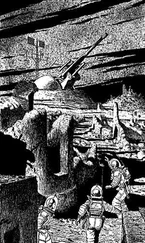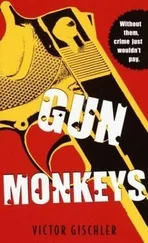It was a spectacular offer. Why, then, had she brought along two people guaranteed to distract him? He gestured at Tseya and Miuzan. “And their role?”
“An earnest of good faith,” Inesser said. “And a reminder that what has been divided can be brought back together.”
A telling hit. He knew not to let it show on his face. Follow up with another question. Don’t let her scent blood. “How did you talk the Rahal into going along with this?”
“Rahal, hell,” Inesser said. “As far as most Rahal are concerned, one set of rules for Doctrine isn’t all that different from another, even if they have to update all their forms. It’s the Andan and the Vidona who are having difficulty falling into line.”
Tseya made a moue. “Yes, well,” she said, “Andan infighting must be very entertaining to the Shuos about now.” Knowing what he did about her family, Brezan could only imagine.
“Really,” Inesser said, “it’s not so difficult when you have all the guns.”
Something didn’t add up. “You could have tendered this selfsame offer—oh, maybe not nine years ago exactly ,” Brezan said. Even if the majority of the Kel had gravitated toward Inesser, with her infuriatingly immaculate reputation, she’d had to consolidate power just like he had. He’d read the reports of the demonstrations, the protests, the occasional blotted massacre, some provided by Mikodez, some by his own agents. “Even if your initial contact made you hesitant”—he nodded at Miuzan, although she didn’t return the gesture—“you should have thought it up before the foreigners moved on us both. So what changed? Why now?”
“Are you saying no?” Inesser said.
“I’m not saying anything until I understand what’s in it for you,” Brezan said, “including the timing.”
“You’re not wrong to be concerned,” Inesser said with no trace of human emotions like shame or self-consciousness. Brezan was starting to wonder if some team of engineers had constructed her from fire and gunsmoke and metal uncrushed from the hearts of dead stars. “There is, in fact, the matter of timing. I thought there was a chance that Hexarch Nirai Kujen had died along with the others. But I recently received word that he escaped—and that he is intent on remaking the hexarchate. The old one, before Jedao broke loose of Kel Command and did his best to smash the old order by fighting the Hafn. It is urgent that we stand against the parasite.”
He’d gotten two pieces of information from this. The first, and less useful, was that Inesser knew about Kujen. Given Inesser’s rank and seniority, that didn’t surprise him. The second was that she had intelligence on Kujen. Assuming it could be relied on, which was a big if. “Sources, please,” he said.
Miuzan scowled at him, because he’d again called Inesser’s trustworthiness into question. Inesser quelled her with a glance. “You’re right to want to check,” she said. “I’ll tell you—if you agree.”
Stalemate. Mikodez would want to know, so he’d follow up on that later. But first—“What is it you have against Kujen?”
“So you do know of him.”
Brezan shrugged. “I was briefed.”
“Why,” Inesser said, an edge to her voice, “do I strike you as a natural ally of his?”
“You’ve been serving the hexarchate for longer than my parents have been alive,” Brezan said mildly. “If you were going to do something about Kujen, why not before?”
“Because when I was much younger,” Inesser said, “and intent on making a name for myself, Kel Command assigned me special duty guarding him. I saw the things he did to his subjects.”
“I can’t see how a hexarch could last long treating his people poorly,” Brezan said. Fishing for information.
The wry set of her mouth told him she knew what he was up to, but she gave him more details anyway. “Not the technicians and researchers. The research subjects. I remember thinking that he had such a collection of beautiful courtesans, better even than the Andan could have provided him. But they weren’t courtesans at all. Or anyway, they hadn’t started that way. He just liked being surrounded by beautiful things. Most of them had started out as spare heretics. Some of them were prisoners of war who were never going home again.”
“Well,” Brezan said, “it’s rare that Kel Command ever sent anyone home, period.” He remembered that much. Taking prisoners of war was also rare, but he didn’t need to mention that to Inesser of all people.
Inesser closed her eyes for a moment. When she opened them, her face was haunted. “I stood by,” she said, “and let him do the things he did to his pets. Because those were my orders. Even so... they deserved better than that.”
Brezan weighed her words. So that was why she thought she could work with a crashhawk. Because she remembered a time when she wished she’d been one herself. “Fine,” Brezan said, reaching for Inesser’s gloves and folding them reverently. “I’m in. Tell me everything.”

CHAPTER THIRTEEN
JEDAO’S PLANS FOR Isteia went wrong from an unexpected quarter. He’d been trying, futilely, to schedule unsupervised time at a firing range without getting in the way of his soldiers’ training. He wanted to know how good he was at firearms without having everyone watch him fail to figure out how to load a service pistol. No such luck. Eventually he gave up and set out for the command center in preparation for the approach when his augment flared up in a spectacular burst of pain: The hexarch requires your presence.
Now of all times? If Kujen was having second thoughts, this was terrible timing. But he couldn’t say no to a hexarch, either. Gritting his teeth, Jedao turned around and made his way not to Kujen’s quarters or to a conference room, but to one of the shuttle bays.
Kujen awaited him, dressed in the most practical outfit Jedao had yet seen from him: a simple black-and-silver Nirai uniform, complete with gray gloves, as if he were pretending to be an ordinary technician. Only the non-regulation jewelry, which included dangling silver earrings and a necklace of polished jet, betrayed him. Foxes forbid that Kujen give up all personal decoration.
Jedao’s eyes slitted as he came out of the lift. One of the shuttles was being prepared for launch by a mixed group of Kel and Nirai. He’d given no such orders, which meant Kujen had. Just as tellingly, nobody saluted him when he showed up.
“Small change in plans,” Kujen said.
Abandoning the moth already? Jedao kept himself from saying. “Do tell.”
Kujen smoothed a nonexistent wrinkle in his right glove. “You don’t need me to carry out the battle. Besides, I dislike being caught near calendrical rot. I will be observing from a safe distance.”
“Why?” Jedao said. “Afraid you’ll be in your beautiful prototype when I get it shot up?”
“You won’t,” Kujen said. “You’re going to do fine. But you’ll do even better if you don’t have to worry about me. I will, however, borrow one of your tactical groups for my personal protection.”
Jedao wasn’t concerned yet. Whatever advantage in numbers the Compact had, the shear cannon would make up for it. “Then take Tactical Two,” he said. “If her combat record is to be believed, Nihara Keru is the best commander available.” Also a consideration, although he didn’t say it out loud, was that he trusted Nihara to argue with Kujen if he tried to do something militarily stupid. “I’ll inform the commander of her new orders, and tell the Dissevered Hand to expect you.”
Читать дальше













